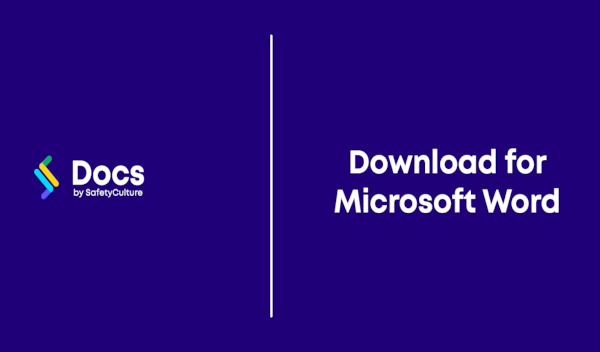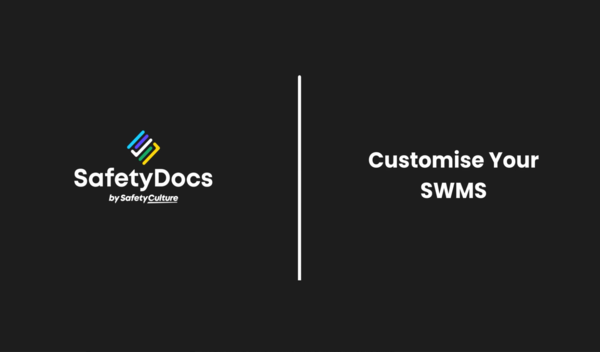Heat Stress Safe Work Method Statement
- Instant Document Delivery via Email.
- Add to your existing management system.
- Can assist in ensuring workers are adequately trained.
- Customisation instructions provided.
- Microsoft Word Format (Fully editable).
- Only pay once (no subscriptions required).
Heat Stress Safe Work Method Statement (SWMS)
This Heat Stress Safe Work Method Statement (SWMS) covers hazards and controls associated with working in excessively hot environments (such as on roofs, foundries, etc.). Thermal comfort is subjective, but generally, conditions above 26 degrees C and, relative humidity higher than 60 percent may cause heat stress which may require controls to be initiated.
Job Steps Covered in Heat Stress SWMS
- Training: Highlights the importance of recognising heat stress symptoms and the necessary responses.
- Acclimatise Workers: Focuses on gradually acclimatising workers to hot conditions to reduce heat stress incidents.
- Planning: Involves assessing potential heat stress risks and planning appropriate control measures.
- Working Alone: Addresses the specific risks and controls for individuals working alone in hot conditions.
- Arrival On-site & Assess On-site Conditions: The work site is safe and conditions are assessed upon arrival.
- Conduct a Risk Assessment: Involves a thorough risk assessment of heat stress factors and implementing control measures.
- Working in Hot Conditions: Details strategies for working safely in hot and humid conditions.
- Emergency Response: Outlines the steps to take in case of a heat stress incident.
Each purchase of our SWMS comes with a complimentary copy of the Legislation & Codes of Practice Reference List, valued at $19.95. This valuable resource provides an up-to-date overview of relevant laws and standards, further supporting your compliance efforts.
Key Features of the SWMS
- Regulatory Compliance: Adherence to Australian legislation regarding workplace safety in hot environments.
- Hazard Management: Provides a systematic approach to identifying and managing heat-related hazards.
- Emergency Response: Includes protocols for emergencies, ensuring quick and effective responses to heat stress incidents.
- Customisable Content: Allows for easy addition of company logo and specific job details, making the document relevant to various work sites.
Who is it Suitable For?
This SWMS is essential for businesses and workers involved in industries where high temperatures pose a significant risk, including construction, manufacturing, and outdoor maintenance sectors. It's particularly beneficial for supervisors and workers who are regularly exposed to hot environments and need to understand the risks and controls associated with heat stress.
Ensure your team is prepared and protected against the risks of working in hot conditions with our Heat Stress Safe Work Method Statement.
- Instant Document Delivery via Email.
- Add to your existing management system.
- Can assist in ensuring workers are adequately trained.
- Customisation instructions provided.
- Microsoft Word Format (Fully editable).
- Only pay once (no subscriptions required).
Heat Stress Safe Work Method Statement (SWMS)
This Heat Stress Safe Work Method Statement (SWMS) covers hazards and controls associated with working in excessively hot environments (such as on roofs, foundries, etc.). Thermal comfort is subjective, but generally, conditions above 26 degrees C and, relative humidity higher than 60 percent may cause heat stress which may require controls to be initiated.
Job Steps Covered in Heat Stress SWMS
- Training: Highlights the importance of recognising heat stress symptoms and the necessary responses.
- Acclimatise Workers: Focuses on gradually acclimatising workers to hot conditions to reduce heat stress incidents.
- Planning: Involves assessing potential heat stress risks and planning appropriate control measures.
- Working Alone: Addresses the specific risks and controls for individuals working alone in hot conditions.
- Arrival On-site & Assess On-site Conditions: The work site is safe and conditions are assessed upon arrival.
- Conduct a Risk Assessment: Involves a thorough risk assessment of heat stress factors and implementing control measures.
- Working in Hot Conditions: Details strategies for working safely in hot and humid conditions.
- Emergency Response: Outlines the steps to take in case of a heat stress incident.
Each purchase of our SWMS comes with a complimentary copy of the Legislation & Codes of Practice Reference List, valued at $19.95. This valuable resource provides an up-to-date overview of relevant laws and standards, further supporting your compliance efforts.
Key Features of the SWMS
- Regulatory Compliance: Adherence to Australian legislation regarding workplace safety in hot environments.
- Hazard Management: Provides a systematic approach to identifying and managing heat-related hazards.
- Emergency Response: Includes protocols for emergencies, ensuring quick and effective responses to heat stress incidents.
- Customisable Content: Allows for easy addition of company logo and specific job details, making the document relevant to various work sites.
Who is it Suitable For?
This SWMS is essential for businesses and workers involved in industries where high temperatures pose a significant risk, including construction, manufacturing, and outdoor maintenance sectors. It's particularly beneficial for supervisors and workers who are regularly exposed to hot environments and need to understand the risks and controls associated with heat stress.
Ensure your team is prepared and protected against the risks of working in hot conditions with our Heat Stress Safe Work Method Statement.


